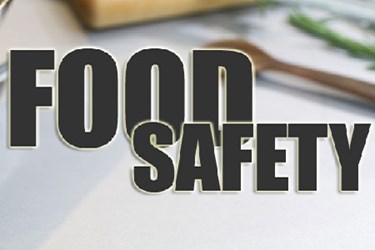Due Diligence Equates To Exceptional Food-Safety Practices
By Laurel Maloy, contributing writer, Food Online

In the UK, a Due-Diligence Defense involves showing that all reasonable precautions have been taken and that careful examination has been applied in regard to EU and UK food-safety law
The Due-Diligence Defense system is the basis of UK food-safety law and cannot be utilized unless the offender has employed a valid, food-safety, risk-assessment system and has diligently kept the appropriate records. The risk-assessment system of choice is Hazard Analysis Critical Control Points (HACCP). In the global food-supply chain continuity and standardization will be the benchmarks for worldwide food safety and may very well determine a company’s inclusion or exclusion to the global marketplace. Were you aware that the U.S., Canada, and Japan all fall behind the EU on food traceability practices?
Case Study: Achieving HACCP Requirements With X-Ray Inspection
Gone, also, are the days of pen and paper, sticky notes, and notebooks for recordkeeping. These methods are no longer acceptable in the UK; it can be expected the U.S. will follow suit. There are many resources for digitizing HACCP and just as many reasons to do it:
- Automated checks and recordkeeping can save a lot of valuable and costly man-hours, as opposed to manual, time-consuming, and costly checks and paperwork
- Digitized systems can monitor and record temperatures 24/7, while manual-temperature checks are typically done on a less-frequent schedule and are prone to errors
- Digital records are automatically stored and often automatically backed up, whereas paper files can be misplaced, lost, unreadable, or destroyed completely
- Digital records are date- and time-stamped and are tamper-proof; paper records are often undated or misdated and can be tampered with
- Data can be accessed at any time, in real-time, from anywhere, while a trip to the office or a storage facility may be necessary to retrieve records for inspections and/or audits
- Issues, such as temperature variances or positive test results, can be immediately recognized and responded to, rather than the more cumbersome way of collecting and evaluating the information before a response can be determined
- Instant alerts to potentially costly or dangerous situations can be sent via smart phone, tablet, or desktop, whereas issues recorded manually are often discovered long after they’ve occurred
Imagine being alerted to a freezer door left ajar on a dock in New Jersey, when you are at the corporate office in California. How much money could that potentially save in how many instances? Temperature variances can quickly become a costly issue. Monitoring temperatures 24/7 ensures the ability to correct a variance before a loss is experienced. Think what it would be like to have records instantly at your fingertips for every one of your facilities, as well as the ability to assess the information in real-time. Envision having the certainty, in the face of an audit, to know exactly how and where to find the appropriate records, and to know the information is true and accurate.
Another resourceful tool for exercising due diligence is free of charge and user-friendly. The FDA is making it easy for even the smallest operation to function at an elevated level. Check out the FDA’s Food Defense Plan Builder. A previous Food Online article provided a number of resources for exploring digital solutions for your facility.
White Paper: Food Traceability — Solving The Imperative Of Compliance
Due diligence is not only the basis for UK and EU food-safety law; due diligence is peace of mind, due diligence is a corporate responsibility. Meriam-Webster defines due diligence as: the care that a reasonable person exercises to avoid harm to other persons… In the dictionary of U.S. food safety, due diligence encompasses HACCP, FSMA, and Current Good Manufacturing Practices (CGMPs). A strong, food-recall plan and traceability systems are also imperative in the event the worst happens and will be vital to proving your company’s commitment to exercising due diligence.
